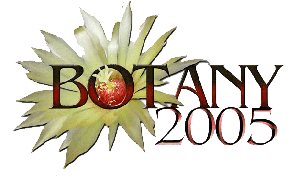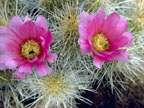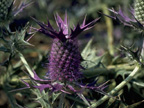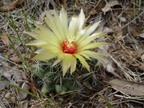Forum Overview
The
Botany 2002 conference in Madison, Wisconsin included the inaugural
education/outreach Forum. Approximately 1,000 plant biologists attended
the overall conference, and 300 of these traveled to Madison early
to attend the Forum. The Program Committee was delighted with the
attendance and with the Forum program. A summary of the program is
available online Attendees completed evaluation forms of the Forum
program, and they also found it to be very valuable and a refreshing
addition to annual scientific meeting. Therefore, Botany 2005 will
include the fourth Forum.
"...Teaching
students about plant biology is as critical to the future of
the field as is research and must take its proper place
as an equally laudatory endeavor for botanists. Equally vital are
activities that communicate the excitement of plant biology to
students and teachers involved in K-12 education and to the general
public..."
This passage from the Botany for the Next Millennium Report (BSA,
1995) emphasizes the important role of education and outreach, at
all levels. However, there continues to be a reduction in the number
of Botany courses taught at the undergraduate level, many Botany
Departments and programs have been eliminated nationwide, and the
National Research Council no longer recognizes Botany as a valid
graduate education program. Despite this, the global significance
of plants continues to grow. It is therefore vital that botanists
and their professional societies work to ensure that plants are represented
in the undergraduate and graduate curriculum, as well as in science
outreach initiatives.
The Forum
will begin on Friday evening with early registration and an informal
reception. The main sessions will occur on Saturday.
Although some informational sessions will be included, the
program will primarily include interactive panel and roundtable
discussions
as well as breakout groups focusing on a range of topics. Sunday's
offerings will include a series of FREE hands-on workshops.
Two-hour, half-day, and full-day workshops will be organized
so that attendees
can participate in more than one workshop, and/or participate
in field trips, also
being planned for Sunday. The Call for Workshops has already
been posted on the conference web site.
New
this year
Botany
2005 applied
for and received the opportunity for Texas teachers to receive Continuing
Professional Credits (CPEs). Up to 15 credits may be received for
attending the Forum Session, as well as Scientific Workshops or participating
in Field Trips.
Topical Sessions
TOPICAL 'THREADS' - Individual sessions will be grouped within topical
themes, or `threads'. The six general threads being considered
are listed below, and each is followed by several example session
titles. Organizers will be able to submit their own session titles
as well as select the most appropriate thread for their session.
-
Emphasizing
Botany across the Curriculum - Sessions on what is the vital content
to cover, and what's at the cutting edge within disciplinary
areas (e.g., systematics, development, etc.), “How to promote
plants if you are the only botany faculty member in a department,” “Developing
interdisciplinary courses/curricula,” “Educating pre-service
teachers about plants”
-
Designing Investigative
Laboratories - Sessions on `model,' or best-practice, labs (e.g., “Using Wisconsin Fast Plants to study plant development,” “Using
instructional technology to examine photosynthesis”)
-
Engaging
Undergraduates in Research - “What are the challenges
of mentoring undergraduate research students,” “Publishing
with undergraduates in peer-reviewed journals, “Using
your courses to feed your research program”
-
Developing
Effective Teaching and Mentoring Skills - “How
to become a teacher-scholar,” “How to review manuscripts
and grant proposals,” “Tips on balancing your academic
time,” “Graduate student training
programs: The do's and don'ts”
-
Supporting
Effective Teaching and Learning - Sessions
on funding (e.g., information
about grant sources,
tips on writing
proposals and grant management); “Managing a university greenhouse or
herbarium,” “Tips for Chairs and Deans,” “How
to best prep an Introductory Lab,” “How
to assess the effectiveness
of an advanced course”
-
Reaching
Out beyond the Ivory Towers - “Linking up with botanical
gardens and arboreta,” “Linking up with teachers,” “Linking
up with the media,” “Designing and implementing workshops
for teachers,” Sessions
on best-practice initiatives.
Session Types
Four types of sessions will be included in the FORUM program, and
these are listed below. Organizers will be able to select the most
appropriate type of session for their topic.
- Informational Session - A presentation by one to three speakers in
which specific information is conveyed. Informational sessions should
leave a minimum of 20 minutes for questions and answers. - An introduction
by one to three facilitators followed by time for in-depth discussion
or an organized activity that engages the audience. Two thirds of
the time period should be devoted to discussion and interaction.
A breakout session often culminates in a commitment: group recommendations
or personal agendas for future implementation.
- Panel
Session - Two to four panel members including a moderator,
each of which may give a brief introduction,
followed by discussion among them and with the audience. Half of
the time period should
involve audience participation.
-
Roundtable Session - A roundtable is a freewheeling discussion,
usually with multiple viewpoints. The discussion is facilitated by
a moderator, but there are no formal speakers. The moderator sets
the stage for the discussion by providing one or two provocative
questions. Virtually the entire session is interactive.
Deadline
for receiving session proposals is April 1, 2005. Submission
of session proposals should be
conducted
online using the Abstract
Submission Site.
A
Registration Brochure for Botany 2005 will be mailed to members
of participating societies
in spring 2005, and it will be available online at the conference
web site. For additional information or
questions, contact:
Jeffrey M. Osborn, BSA Program Director
Division of Science
Truman State University
100 E. Normal Street
Kirksville, MO 63501-4221
(660) 785-4017 FAX (660) 785-4045
E-mail: josborn@truman.edu
|




